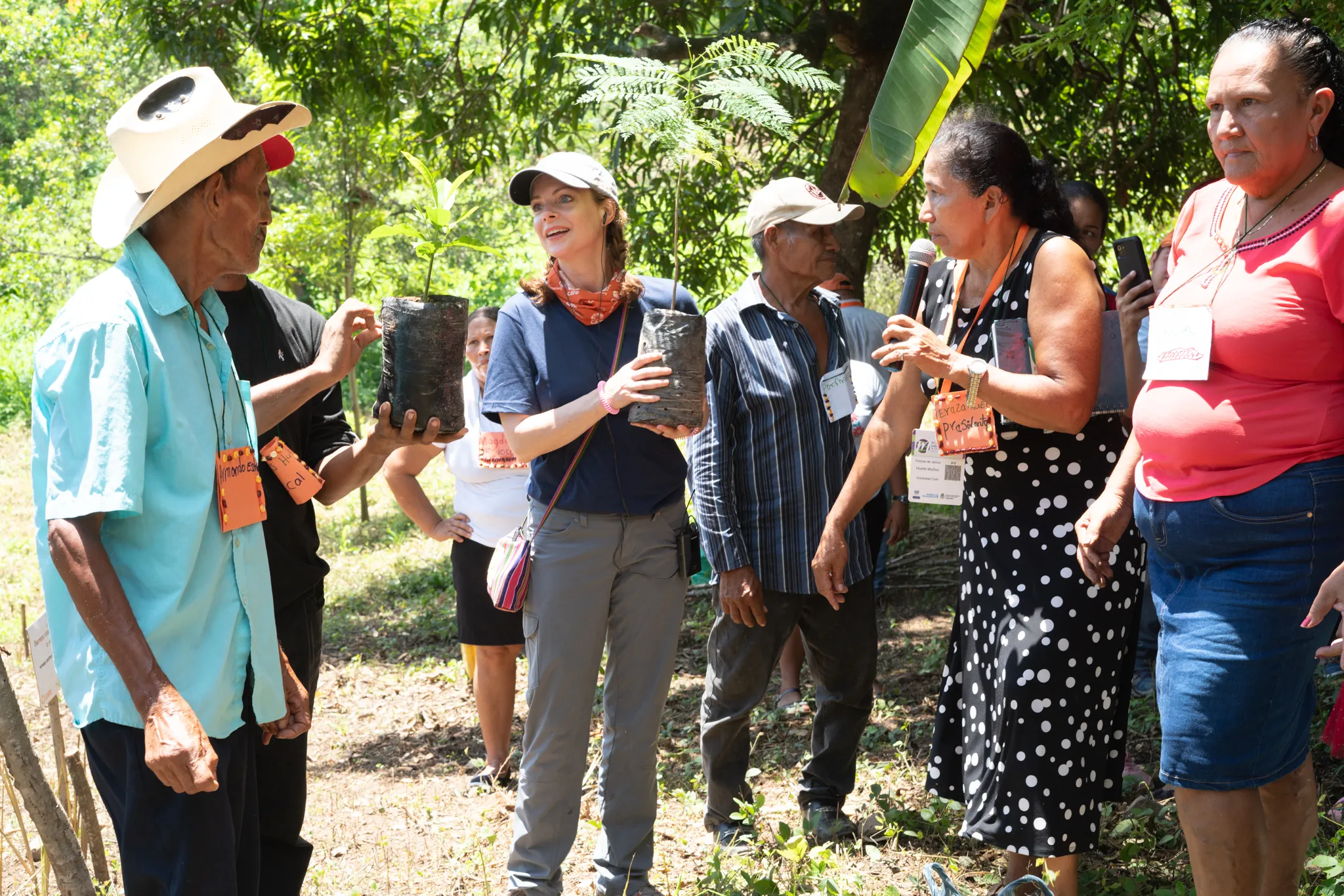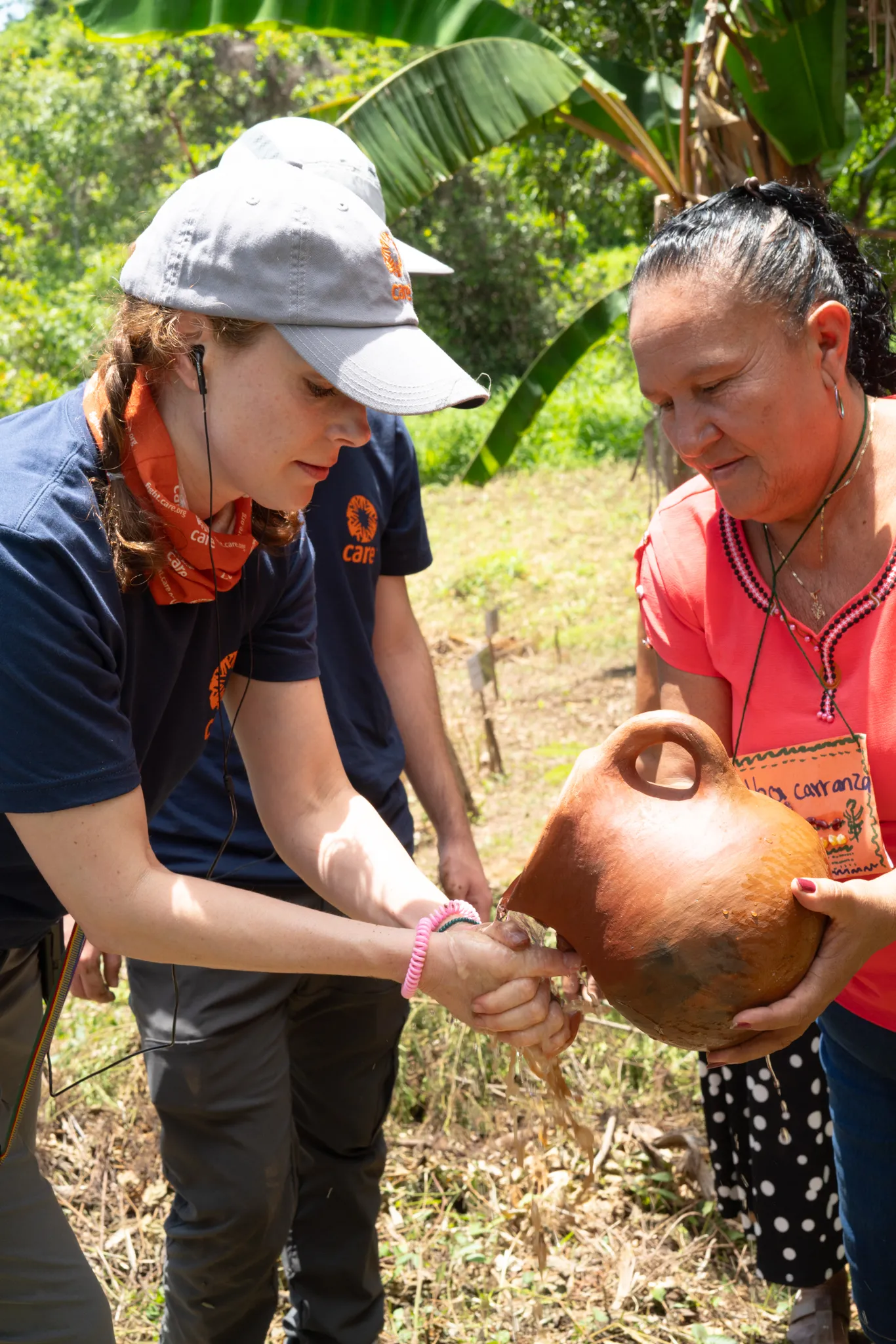In the spring of 2024, Williams-Paisley traveled to southern Honduras, visiting one of the country’s most vulnerable regions, El Corredor Seco (The Dry Corridor).
Accompanied by her 17-year old son Huck, the group visited participants of CARE’s Farmer Field Business Schools and Mujeres Tejiendo Vidas Libres de Violencia (Women Weaving Lives Free of Violence), learning firsthand how these programs are fostering empowerment, resilience, and hope.
View this post on Instagram
“What really strikes me every time I visit these communities is the pride and dignity people feel in their work,” Williams-Paisley said. “It’s so beautiful to see people feel pride and excitement, having something to show for their hard work.”
During her visit, Williams-Paisley met Teresa, affectionately known as “La Presidenta.”



